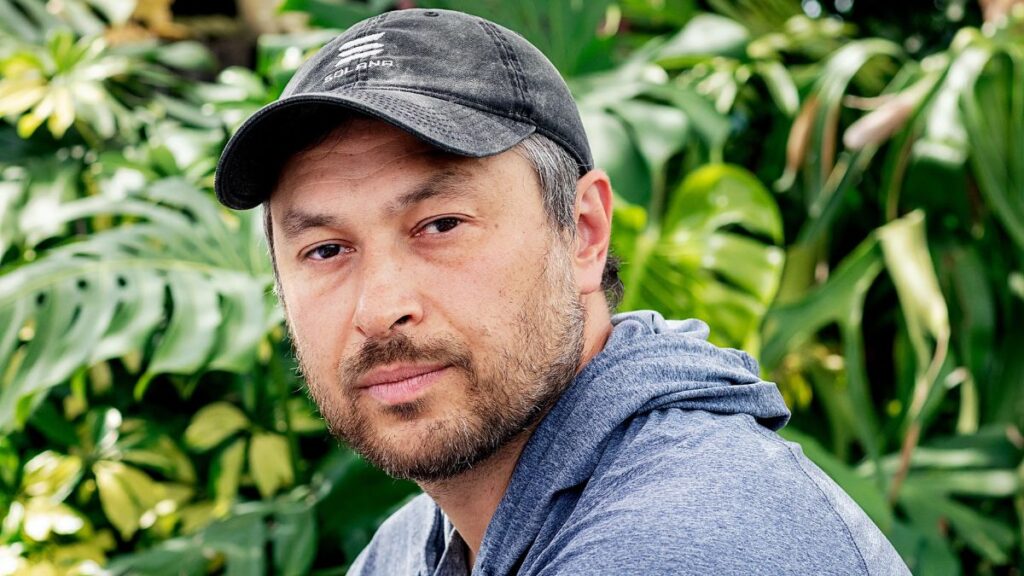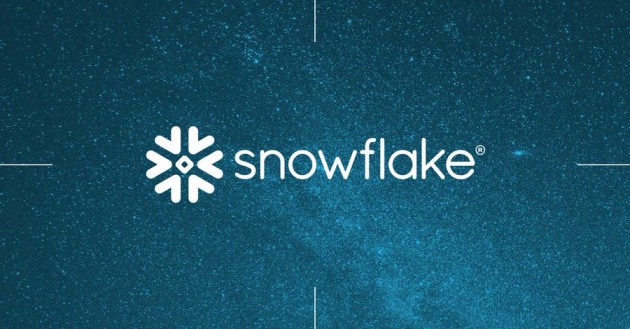Brian Johnson’s AI-Powered Full Body MRI Startup Gets a $21 Million Boost

I am a law graduate from NLU Lucknow. I have a flair for creative writing and hence in my free time work as a freelance content writer.

I am a law graduate from NLU Lucknow. I have a flair for creative writing and hence in my free time work as a freelance content writer.

I am a student pursuing my bachelor’s in information technology. I have a interest in writing so, I am working a freelance content writer because I enjoy writing. I also write poetries. I believe in the quote by anne frank “paper has more patience than person

I am a law graduate from NLU Lucknow. I have a flair for creative writing and hence in my free time work as a freelance content writer.
Anatoly Yakovenko, the co-founder of Solana and CEO of Solana Labs, recently shared his perspective on the importance of Congress regulating cryptocurrency to foster innovation and retain talented entrepreneurs in the United States.

Born under Soviet rule in modern-day Ukraine, Yakovenko moved to America at the age of 11 and has since been a champion for open and accessible technology. Yakovenko’s journey from a young immigrant to a successful entrepreneur mirrors the American dream, but he worries that regulatory hurdles are driving away the next generation of innovators in the blockchain space. In his view, Congress should take proactive steps to create a regulatory framework that both protects consumers and encourages entrepreneurship.
The blockchain revolution has spawned thousands of entrepreneurs with ambitious projects, many of whom are challenging corporate giants in industries like wireless networks, ridesharing, food delivery, and social media. However, building a blockchain company in a compliant manner is a complex and expensive process, dissuading young founders from pursuing their dreams in the U.S.
Yakovenko highlights the alarming decline in the number of open-source blockchain developers in the U.S., dropping from 42% in 2018 to 29% in 2022, emphasizing the urgent need for regulatory clarity to prevent this talent drain.
While acknowledging the need to combat scams and protect consumers, Yakovenko argues that the entire blockchain industry should not be punished for the actions of a few bad actors. Instead, he calls for a regulatory framework that fosters innovation while maintaining American values.
In July, two Congressional committees advanced legislation aimed at creating regulatory frameworks for digital assets and stablecoins, a bipartisan effort that Yakovenko applauds. While these bills may not be perfect, he urges Congress to move forward with them and continue refining the regulatory landscape.
Beyond legislation, Yakovenko emphasizes the importance of government investment in blockchain research and development, citing historical examples of technologies like GPS and the internet that were initially incubated by the U.S. government. He urges policymakers to experiment with blockchain technology and explore ways to harness its potential for public benefit.
Also Read: Intel CEO Says the Chipmaker’s Technology Is Central to AI Boom
Yakovenko concludes by inviting an open conversation between blockchain entrepreneurs and policymakers, advocating for collaboration to shape a regulatory framework that not only protects consumers but also encourages innovation and keeps talented founders building in America.
As the blockchain industry continues to evolve, Yakovenko’s insights underscore the critical role that Congress and government institutions must play in ensuring that the United States remains a hub for technological innovation and entrepreneurship in the digital age.

I am a law graduate from NLU Lucknow. I have a flair for creative writing and hence in my free time work as a freelance content writer.
Cloud Computing in today’s era is a very promising field to both launch a business and get employed. Data storage based on cloud computing has escalated first and it makes access centralized for big enterprises as well as for individuals. Snowflake Inc is a very successful company in the sector of cloud computing-based data warehousing. Benoit Dageville along with Thierry Cruanes and Marcin Zukowski formed the company in July 2012. The company, however, was in stealth mode for two years and was officially launched in 2014. Currently, the company provides cloud-based data storage services and runs on Google Cloud Platform since 2019.
Benoit along with the other co-founders worked from scratch to build a data platform that will harness the power of cloud storage. The company claims that its platform leverages the two most important elements of the general cloud platform,i.e., elasticity and performance to develop a more flexible product. Snowflake makes sure that the customers can share data both in and out of their organization with the utmost security and without actually copying or moving the data.

The platform of Snowflake is used by many renowned companies including Adobe, Overstock, Capital One, etc. Over the years, the company has expanded on international grounds and currently, it has more than 1300 partners helping to strengthen the presence of Snowflake Inc. According to the statistics of last year, it had 3,400 active customers in 2020.
Benoit and Thierry knew each other before co-founding Snowflake as they were colleagues while working for Oracle. Back in 2012, Benoit and Thierry discussed how the development of Hadoop will bring change in scenarios for processing large datasets. It was most likely to make the work of Benoit and Thierry obsolete that they were doing in Oracle. So, these led both the co-founders of Snowflake to think about the future and how big data was gradually taking over the data storage service sector. Benoit also realized that even Hadoop is having a few shortcomings like missing key features and overall less efficient. This led to the idea of building a new platform that would overcome both the shortcomings of Hadoop and data warehouses back then.
So, Benoit, Thierry, and Marcin started working on this new data platform from zero and were finally successful in developing it. The system that they created ran ten times faster as compared to any other data storage platform back then for the same cost. After they created the product, they gradually moved forward to the next step and founded Snowflake Inc. The company was named Snowflake because all the co-founders have a love for winter sports. Though the product was successfully developed in 2012, it was two years later that the company was launched publicly by Bob Muglia. In 2015, the product was eventually available and 80 organizations used it back then.
Snowflake has always been one of the top companies in the data storage sector to continuously evolve their product. They are well known for their work culture and innovation that has kept them in business with a strong ground. When the product was developed in 2012, the co-founders started looking for investors and it was a bit difficult to convince people how a data storage platform will evolve in the future and why their system was superior. But, both Benoit and Thierry had a professional background which strengthened their game of networking. So, in August 2012 the company was successful in raising $5 million in Series A funding led by Sutter Hill Ventures.
After it came out of stealth mode in 2014, the company raised another $26 million followed by $45 million in 2015. The next two years were followed by raising a huge amount of money and in 2018 the company’s net valuation became $1.5 billion. Snowflake reached unparalleled heights as it gained unicorn status only after four years of the official launch. Last year, the company became public via an IPO and raised $3.4 billion.
Due to its innovative products, Snowflake has been the recipient of multiple awards and honors including “Cool Vendor” in Gartner’s Magic Quadrant, acquired the first position at the 2015 Strata + Hadoop World startup competition, ranked No. 1 on LinkedIn’s 2019 U.S, etc.

Benoit Dageville is a French computer scientist who started his career at Bull Information Systems. Before co-founding Snowflake Inc, he worked at Oracle for more than fifteen years. Thierry Cruanes is also a computer scientist who worked at two leading companies, IBM and Oracle before developing Snowflake. Marcin Zukowski also has a very impressive professional career which includes working in multiple companies like Microsoft, Google, CWI, Actian Corporation, etc. Apart from co-founding Snowflake, he also founded Vectorwise.

Annasha Dey is an NIT student, who apart from studying engineering is also a content writer. She has a great interest in photography, writing, reading novels, and travelling as well. She is a foodie who loves socializing and hanging out with her friends. She is also a trained Kathak dancer and a big fashion enthusiast. Dey also loves watching TV series, which includes F.R.I.E.N.D.S. and Big Bang Theory. To be a better writer she prefers to read more
BOE Technology Group Co., Ltd., also known as Jingdongfang, is a China-based electronics and semiconductor company with its headquarters located in Beijing, China. Being an electronics company, BOE Technology exactly knows how much effort it takes to stay strong among great competition from its peers. And, it is tougher to be popular and stay relevant, when the big names from foreign countries are your competitors. BOE Technology is one of the biggest examples of how local products can also be the best, and how buying local products can help the country’s economy, too.
About more than twenty years ago, the company was struggling to make its mark in the industry as the competition was tough. But with constant efforts, BOE Technology is now known on the international level, and companies like Apple Inc. are its permanent customers.
BOE Technology is among the leading electronics company in China and expertise in electronics health care, the internet of things, and photovoltaics, such that it produces products like interface devices, smart medicine, smart IoT systems as well as engineering integration-related products. BOE Technology is also famous as the largest supplier of LCD, OED, and flexible/foldable displays. The company also manufactures and sells fingerprint sensors, optoelectronic sensors, and solar panels.

BOE Technology has expanded overseas to 19 countries and has over 65,000 people working for it. Looking at the 2018 records, the company earned revenues worth US$14.56 billion and values at US$18 billion. SES-imagotag and Varitronix are its major subsidiaries.
Wang Dongsheng, who was an accountant, founded BOE Technology as Beijing Oriental Electronics Group Co., Ltd in April 1993. He opened the company by overtaking an ailing vacuum tube factory and raising money from his subordinates. Though, in the beginning, the founder had to sell mouthwash to generate extra income, the company soon was manufacturing and selling the products it intended to, i.e. TV and monitor displays.
The sudden rise in revenues helped BOE Technology list the B shares on the Shenzhen Stock Exchange, in 1997. The company was then renamed BOE Technology Group Co., Ltd. in 2001. It made its first acquisition in the same year, where it bought the LCD and OLED businesses of SK Hynix for US$22.5 million. In the next two years, the company also bought the flat-panel display business of the same company. In 2009, BOE Technology also acquired the Taipei-based Display Research Center and AIO Manufacturing Plant of Suzhou Gaochuang Electronics.
BOE Technology put the foundation of the BOE Energy Technology Co., Ltd and entered the photovoltaic business in 2009. The company expanded overseas when it opened its branch and an R&D center in Tokyo, Japan (2011) and Santa Clara in Silicon Valley, California (2012). In 2015 and 2016, BOE Technology opened offices in Frankfurt Germany, and New Delhi, India, respectively. In the following years, the company expanded to Dubai, Brazil, Indonesia, South Africa, etc.
The company partnered with the Universal Display Corporation for the supplies of phosphorescent OLED materials. It also entered into a joint venture with Kopin Corporation and Olightek to extend its operations in micro-displays manufacturing. The same year, BOE Technology became the world’s largest LCD TV and monitor producer. As of 2019, the company holds second place on shipping the smartphone OLED panel, Huawei and Samsung being few of its customers.
In the past decade, BOE Technology has made some of the biggest acquisitions, which have contributed to the growth of the company. K-Tronics (2010), OASIS International Hospital (2015), Varitronix (2016), SES-imagotag (2018) are some of the BOE’s acquired companies.
Wang Dongsheng founded BOE Technology around 26 years ago at the age of 35. He was working as an accountant in a state-owned vacuum-tube factory, which he took over later to found BOE Technology. Before starting the company, he sold mouthwash for extra income and borrowed money from his subordinates from his former company to start the business. Today, after 26 years, after all the efforts of Dongsheng, BOE Technology is not only the largest electronics and semiconductor company in China but is among the largest LCD-LED suppliers in the world.

Yashica is a Software Engineer turned Content Writer, who loves to write on social causes and expertise in writing technical stuff. She loves to watch movies and explore new places. She believes that you need to live once before you die. So experimenting with her life and career choices, she is trying to live her life to the fullest.